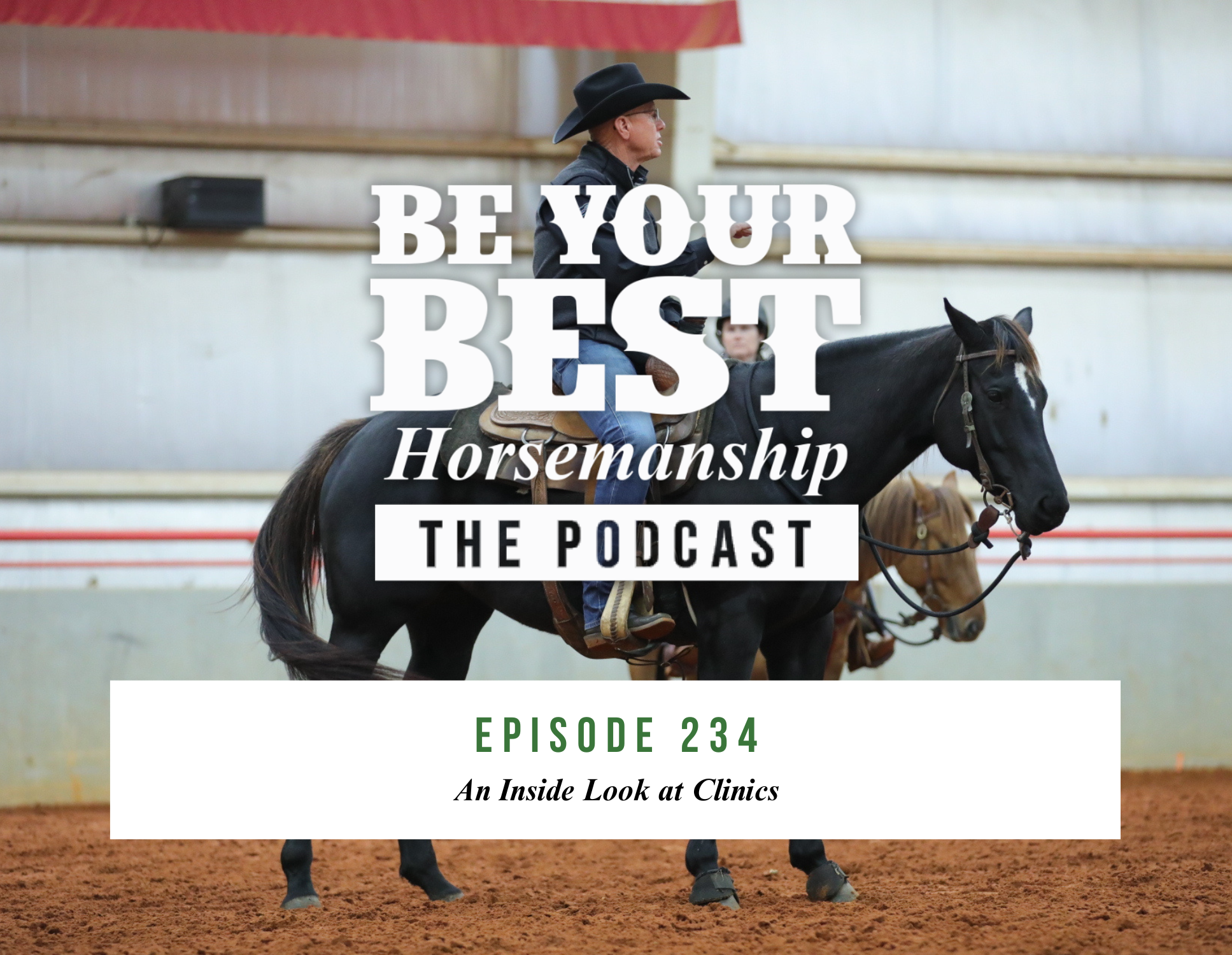Ep 232: Finding Balance for Yourself and Your Horses
This episode was inspired the topic of ‘balance’ as shared on a recent episode of The Companion Pass Podcast with Lindsay Branquinho with Shelby Boisjoli-Meged as the guest host. Listen to the episode here
In this episode, I'm sharing three perspectives on the word "balance" and how you can apply these perspectives to various aspects of your personal and professional life. Join me as I break down the journey of finding balance for yourself and your horses in your everyday training.
Perspective #1: Physical Balance
Balance is arguably the most important skill you can develop in your horsemanship journey. When we talk about balance in the physical sense, we talk about it as being part of the trio that helps you communicate effectively with your horse: feel, timing, and balance. Feel and timing are directly related to your balance in the saddle. Balance is what helps horses use their bodies to complete a maneuver, such as a stop or turn. Balance is the signal before the signal – your weight distribution is the first thing your horse feels. Therefore, your weight distribution in your stirrups makes such a huge difference in the outcome of the signals you are sending.
If the cues with your hands aren’t matching the signals you are sending with your balance, your horse is forced to play a guessing game. If you feel like you’re sending the same cues every time but getting different responses, it’s most likely due to balance. Even if your weight is distributed 49% in one stirrup and 51% in the other, your horse can notice. It is incredibly important to be aware of your balance because even the slightest movement off balance can send a different signal to your horse.
The next time you are in the saddle, make a point to pay attention to your balance: Are you sitting on your left hip or right hip? Are your shoulders ahead of your hips, square with your hips, or behind your hips? Are you leaning to the inside or outside of a turn? Once you start to develop an awareness of your balance, you can start to fix any imbalances in the cues you are sending to your horses.
Perspective #2: Nutritional Balance
Nutritional balance is the foundation of a horse’s energy and performance level. Every horse has unique nutritional needs based on their genetic makeup, environmental factors, and physical exertion. If any nutritional imbalances exist, it can be an extremely limiting factor in their performance and willingness to be trained.
Sometimes, we can be trying really hard to feed them what they need, but we don’t always know the full story. Unfortunately, not every horse is going to respond to the feeding program you have established in the same way. Some horses will naturally be more of an ‘easy keeper’ than the next, and some horses may require additional supplementation to get them the nutrients they need. For this reason, I always recommend for trainers to get with a nutritionist with their preferred feed company to get some guidance on what supplements and/or grains will fill those gaps for your horses.
Many feed companies, like our preferred partner Bluebonnet, offer free consultations with their nutritionists to help answer key questions like: What are some things that might be imbalanced in your horse’s diet? What nutrients do they need more of or less of depending on the forage in your area?
I highly recommend for everyone to take a look at their nutritional programs and seek out expert guidance to help you develop a customized feed program for the horses you have in training. One extra step in this area can save you a ton of time and frustration, as well as optimize the costs of your feeding program in the long run.
Perspective #3: Life Balance
Achieving balance in life can take shape in many forms – physically, spiritually, financially, emotionally, relationally. There are so many areas of the life equation where balance comes into play. Any time you move to a new level or stage of life, there are going to be new challenges that present themselves. In turn, the balance you have established in your life will also be challenged.
Some might argue that ‘balance’ in life is a myth because your work-life balance will rarely be 50/50. In my opinion, balance is less about achieving a state of equal time and effort spent on personal and professional endeavors, and more about learning how to master the art of balancing all of your interests in the amount of time you have available each day.
We all start each week with the same 168 hours. Many people feel like “all they do is work” when they spend 40 hours a week on their careers. In reality, that is less than 25% of the week. If we get 8 hours of sleep each night, that’s another 30% of the week. That means, we still have 45-50% of our week left to spend on the other areas of our lives – physical fitness, relationships, hobbies, relaxing, personal development. When you look at balance through the perspective of time, you can start to see which areas of your daily routine are more unbalanced than others.
Financial balance is another hot topic, especially in the equine industry. The horse training industry has historically been a ‘just get by’ type of industry. And, trust me – I’ve done the ‘just get by’ business plan where I took on anything and everything just to try to make ends meet. We fall into the ‘something is better than nothing’ mentality, where we take on anything and everything to try to keep our business in the green. But, the caveat of this is: when you say ‘yes’ to one thing, you are saying ‘no’ to something else. Every ‘yes’ is taking time away from another potential ‘yes.’ This is why it’s so important to be intentional about what you are giving your time to. The horse market is shifting, and the opportunities in this industry are greater than ever. The changes we’re seeing in our industry right now are creating opportunities for us to achieve better financial balance. I will be the first to say that training is not all about the money – but, you have to have enough financial balance so that you have the time to help others to the best of your ability. Once you have the financial burden off of your shoulders, you are in a better position to help people and apply your time in ways that are more helpful.




